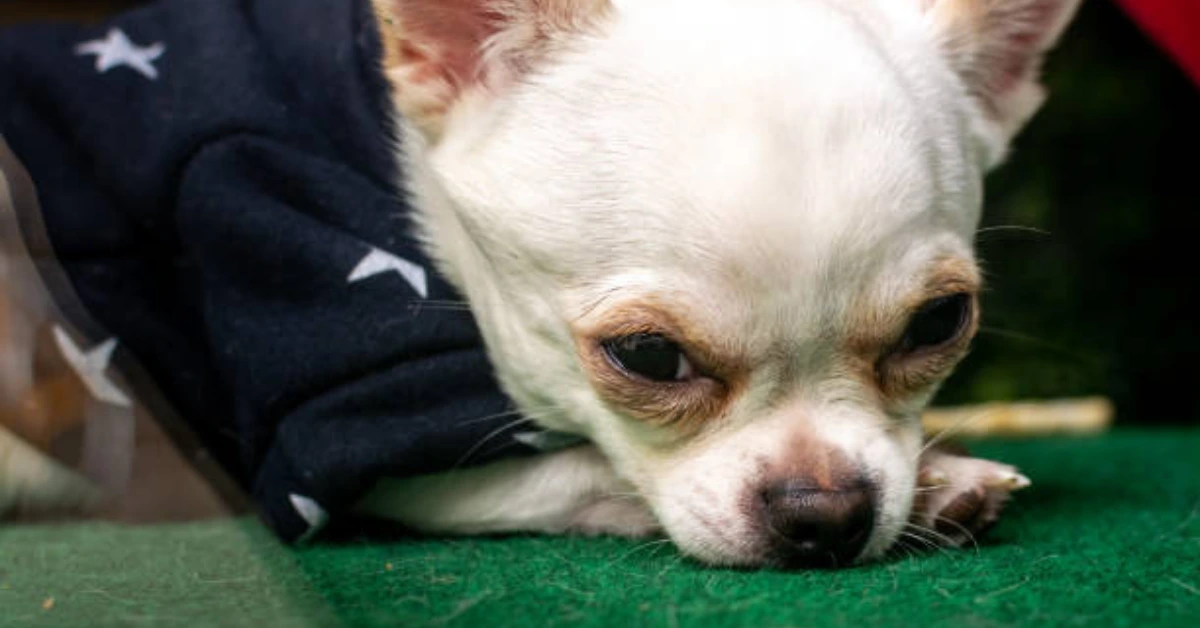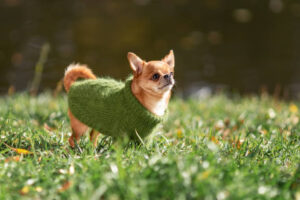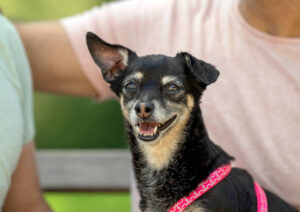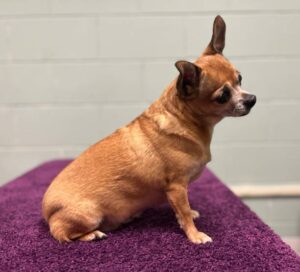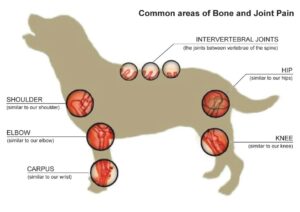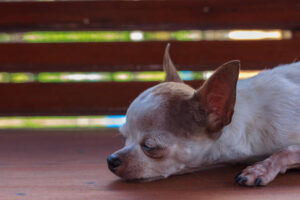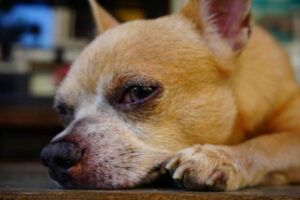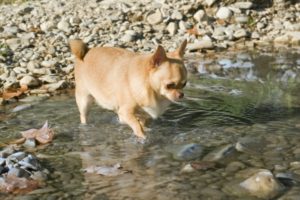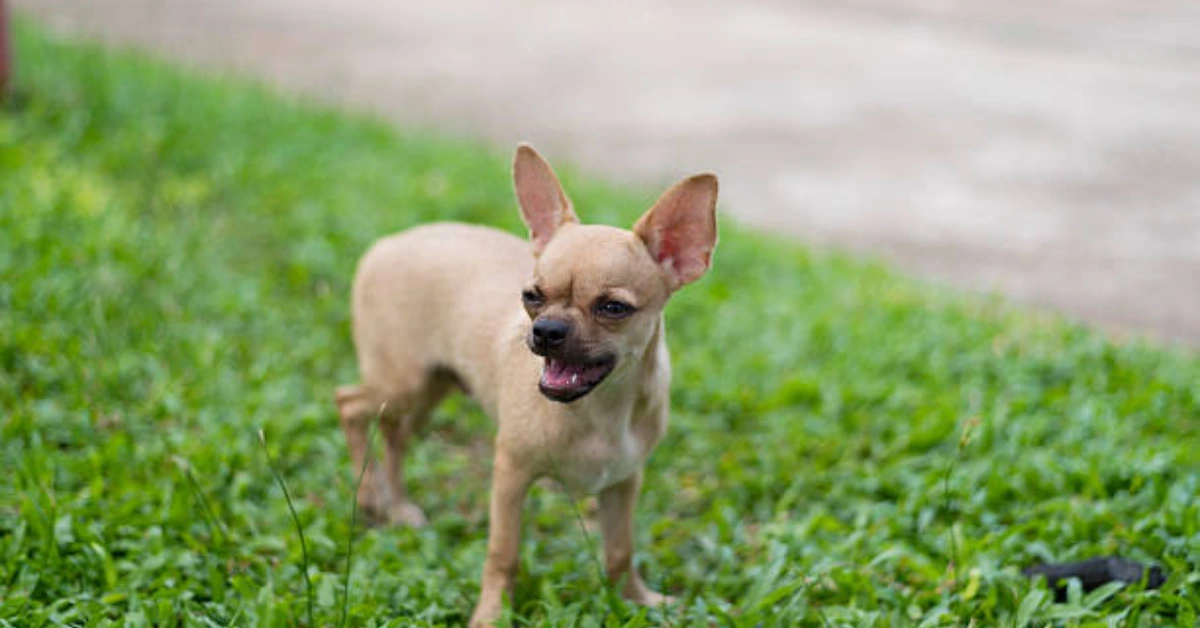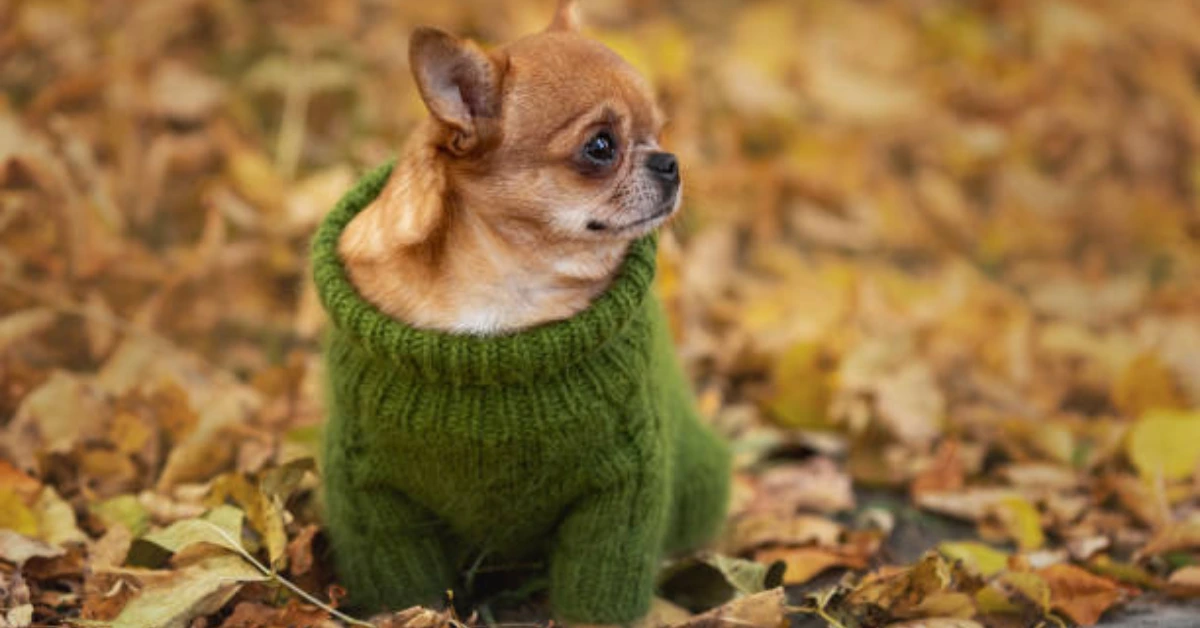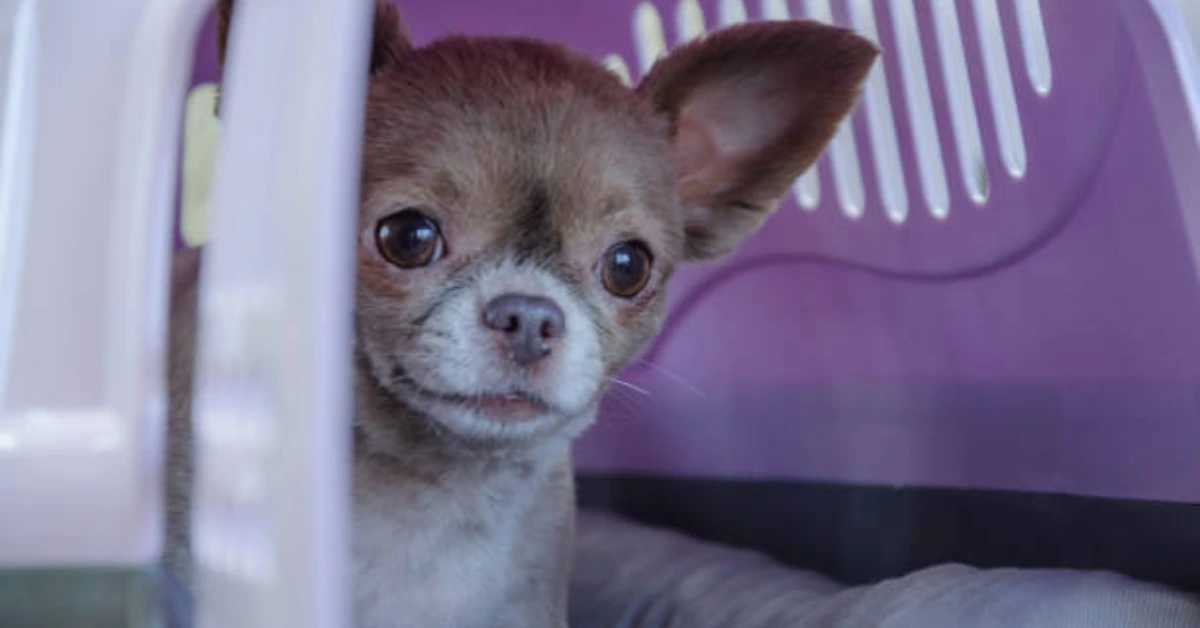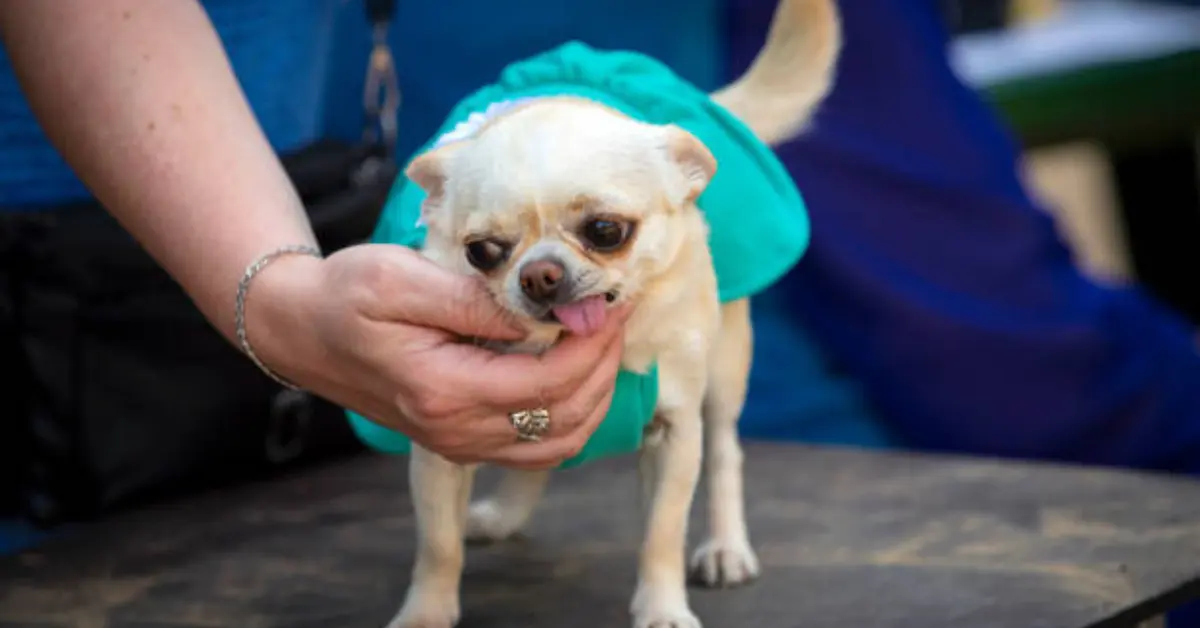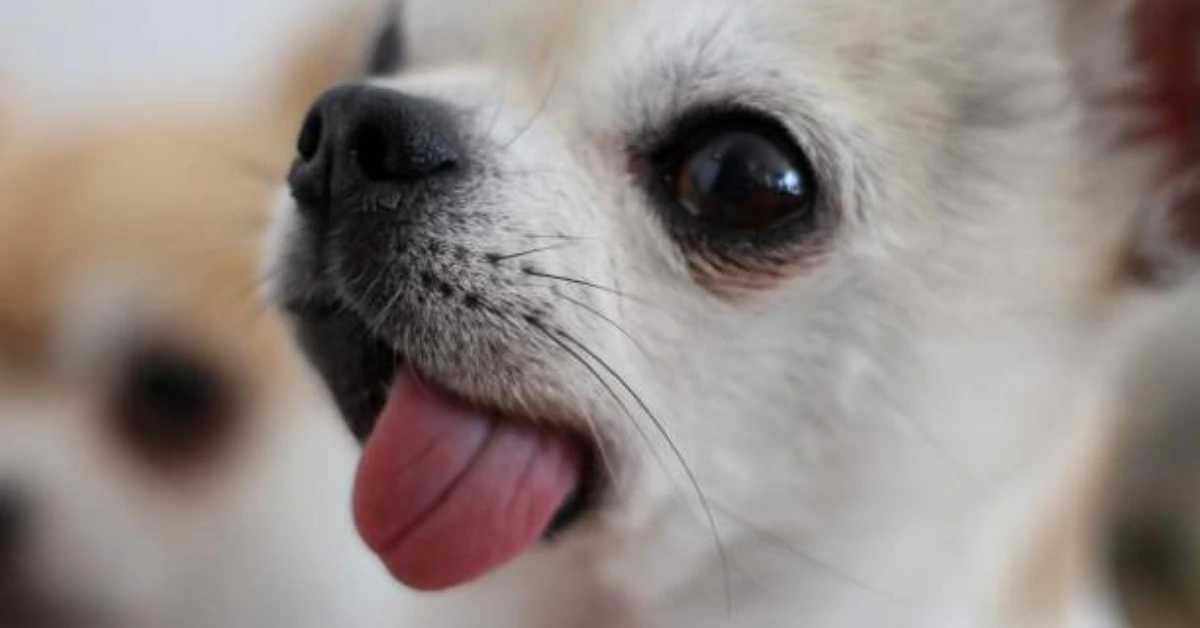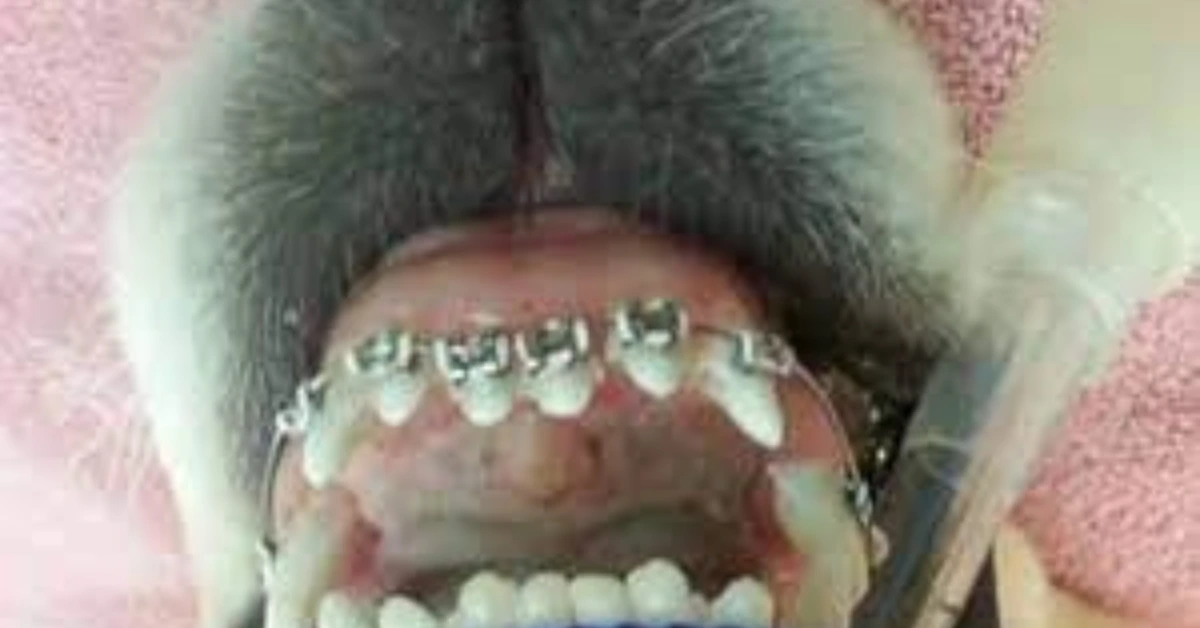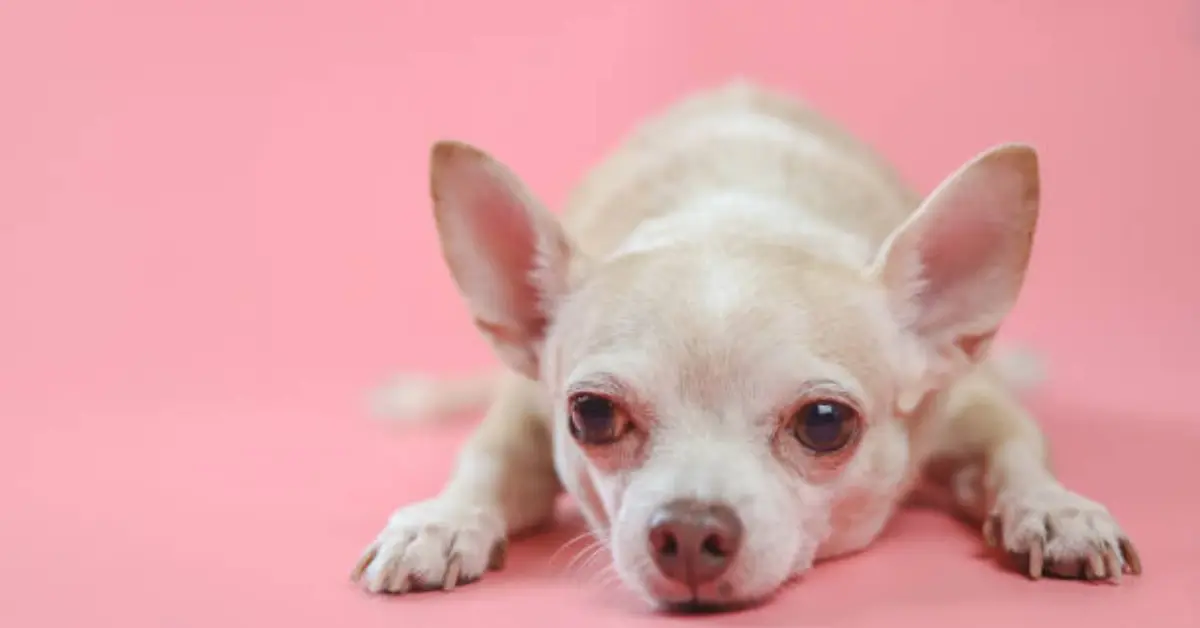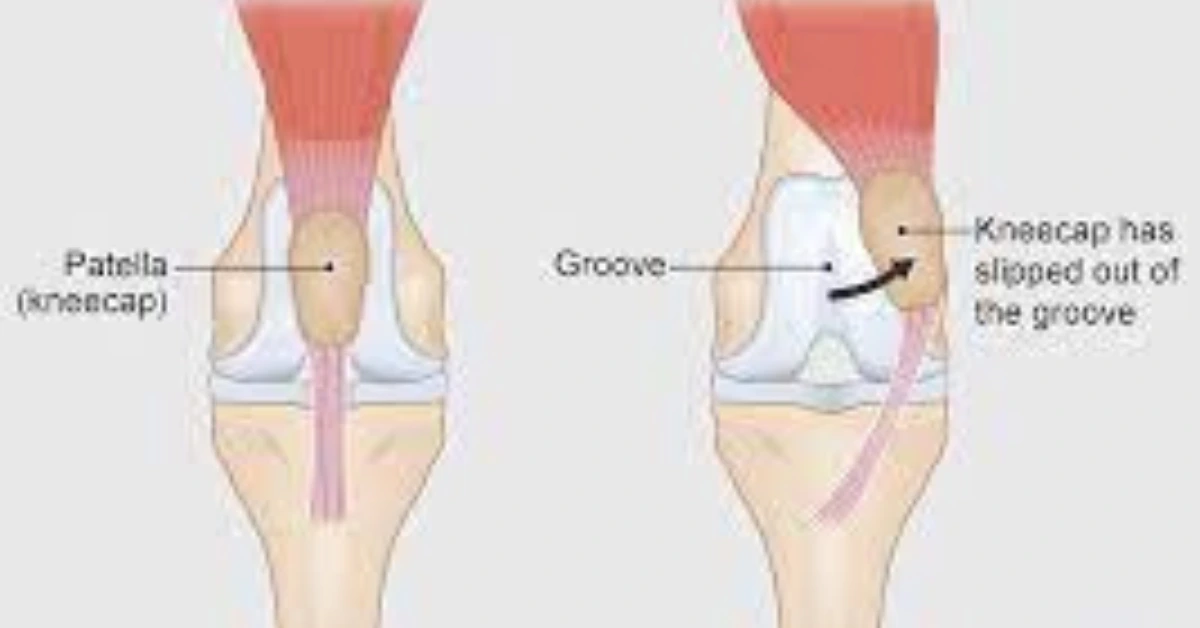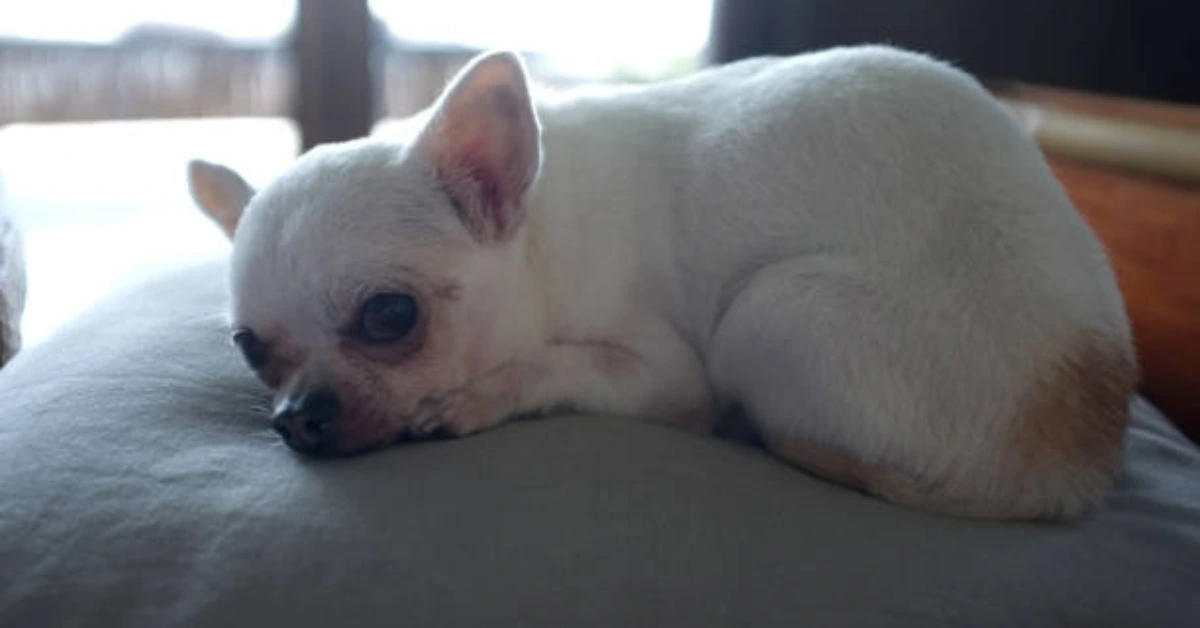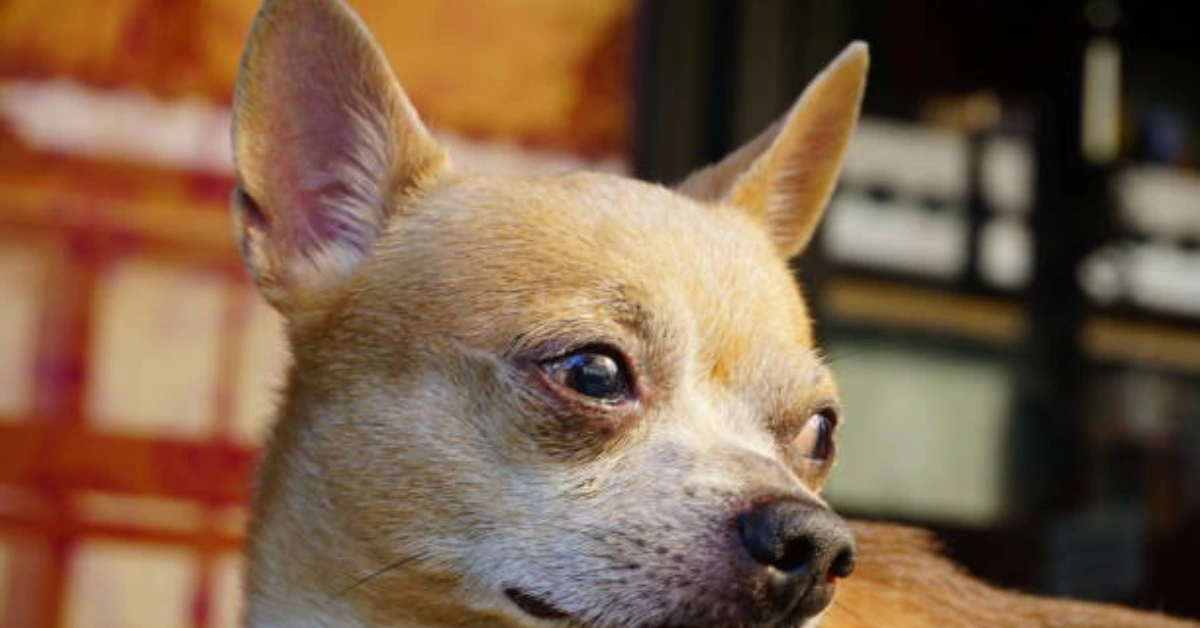One day, as a Chihuahua owner, you could have to deal with the responsibility of taking care of a senior chihuahua. Knowing exactly how to take care of senior chihuahuas and keep them happy and healthy can be challenging.
Thankfully, all the information you require to take care of your cherished senior Chihuahua will be provided by this article! We cover everything, from what meals they should eat to exercise advice and more. To begin giving your elderly Chihuahua the essential care they need, continue reading.
The biggest changes your senior Chihuahua will undergo and how to handle them
Understanding the typical difficulties charming Chihuahuas may encounter is crucial to ensuring their well-being. These adjustments may come about quickly in a year or more slowly over time.
Advertisement
Evaluate the situation every few months to stay ahead of any problems and take preventative measures to ensure your Chihuahua is happy, comfortable, and healthy as they mature.
Skin sensitivity
Chihuahuas’ skin grows even more sensitive as they age. This is particularly true for this breed, as they are predisposed to skin problems otherwise. As people age, the epidermis, the skin’s outermost layer, thins. Their skin becomes more sensitive as a result, and they are more likely to experience dryness, irritation, rashes, and itching.
Dry noses and paws can cause peeling or cracking and can be quite painful. Furthermore, skin conditions can also impact the coat, resulting in concerns with dullness or roughness.
The Fix
- If your chihuahua has sensitive skin, think about utilizing premium coat products that are made to reduce dryness and itching. For better outcomes, give protection and repair priority.
- For senior Chihuahuas, adequate paw protection is essential throughout the year. To make sure your Chihuahua can manage any walking surface, regardless of temperature, invest in high-quality paw wax. This will shield against allergies and irritants in addition to repelling tiny sand and particles. It will also keep their paw skin hydrated and healthy and improve traction. Get the proper wax now and don’t skimp on paw maintenance.
- Use moisturizing nose butter to shield your senior Chihuahua’s nose from frequent problems like peeling, chapping, and drying out.
- An omega-3 EPA and DHA supplement can help with skin and coat health and is advised for joint problems.
Reduced Mobility
As they get older, senior Chihuahuas inherently lose energy and movement. They might wake up more slowly, move more slowly, and tire more quickly.
Chihuahuas lose strength and muscular mass as they get older because they are less able to gain muscle. Additionally, they create less chondroitin and glucosamine, which might result in tight joints and other issues like osteoarthritis. In addition, older Chihuahuas reach their exercise limit sooner than younger ones due to the deterioration in organ function, especially the heart.
The Fix
The objective is to harness the enthusiasm of your senior Chihuahua while being mindful of their limitations:
- Exercise regularly is crucial for your elderly Chihuahua. There are several advantages to walking them for at least two hours every day. It boosts immunity, relieves arthritic stiffness, helps preserve muscular mass, and reduces the risk of developing diabetes, heart disease, and several types of cancer. Adapt the tempo to your Chihuahua’s abilities, but don’t forget to give their daily walks a top priority.
- Adjustments are required for full-day excursions. If you intend to go for a daytime walk with your senior Chihuahua, don’t forget to provide them an opportunity for rest and drink breaks. If you anticipate doing a lot of walking, you might want to use a carry bag or a canine stroller. Bring their bed or cot along and set aside a space for them to nap if you’re spending the full day at someone’s house with your elderly Chihuahua.
- Pet stairs or ramps should be installed to help your elderly Chihuahua get to their favorite resting places, such as the sofa or your bed. As climbing and jumping can be difficult for seniors, this can help avoid strain on their ligaments and muscles.
- Elderly Chihuahuas frequently have trouble slipping on surfaces, both indoors and outside. Seniors can take care of this problem by applying paw wax every two weeks. This increases traction while moisturizing the skin of the paw pad and keeping allergies and irritants at bay.
A loss of bowel or bladder control
An increasing number of elderly Chihuahuas, 11 years of age and older, have incontinence, or lack of control over their bowels or bladder.
In addition to being a common aspect of age, hip problems, bladder infections, and urinary tract infections can also be the cause of it.
The Fix
It is imperative to consult a veterinarian for the diagnosis of this ailment to exclude any potential health issues.
- Take your senior Chihuahua more often to the designated restroom area.
- You ought to allot more time for bowel motions.
- Feed your senior Chihuahuas their last dinner sooner to solve their late-night eating habits.
- It’s advised to keep your elderly Chihuahua confined to a spotless area to avoid frequent mishaps.
- For senior Chihuahuas who are conscious of their mishaps, doggie diapers help maintain their self-esteem. Even though it could seem embarrassing for dogs to wear these, they might be a useful fix.
Osteoarthritis
Numerous elderly Chihuahuas suffer from arthritis. By the time they are eight years old, 80% of Chihuahuas will suffer from osteoarthritis.
In elderly Chihuahuas, arthritis can occur due to some reasons. Arthritis is more common in Chihuahuas that have previously experienced luxating patella or other joint abnormalities, especially in the knees and hips. Furthermore, weight is a factor in the development of arthritis. Although overweight issues are not usually associated with Chihuahuas, seniors, and older folks might be carrying a few extra pounds. A joint’s stress level and risk of damage are closely correlated with the amount of weight it must support.
This syndrome is commonly characterized by reduced mobility, joint stiffness, limb weakening, and outward manifestations of discomfort.
The cushioning effect of cartilage between bones allows for painless, fluid movement. But as Chihuahuas get older, their bodies make less chondroitin and glucosamine, which are essential for strong, healthy cartilage. Because of this, cartilage deteriorates and gets thinner, causing bones to rub against one another. Joint stiffness, discomfort, and inflammation follow from this. In extreme circumstances, structural damage to bones may occur.
The Fix
- Examine your elderly Chihuahua for this illness. NSAIDs, steroids (like prednisone), injections (like Adequan), and complementary therapies (like massage and acupuncture) are available as treatment alternatives.
- Add pet steps to improve mobility close to furniture.
- Provide the utmost comfort to your elderly Chihuahua by investing in an orthopedic memory foam bed. It delivers warmth to relieve stiffness in addition to offering their bones and joints the ideal support.
- Walk your elderly Chihuahua at least twice a day to keep them active and to help preserve their joints. Not only will this light to moderate activity keep their joints supple, but it will also lessen inflammation. Make sure your elderly Chihuahua is comfortable with the pace you choose.
- Beginning at age six, give your senior Chihuahua regular vitamins to help maintain healthy joints and prevent knee problems. Start later and you will still reap the rewards.
Changes in hearing
Chihuahuas who largely rely on their sense of hearing may find it difficult as they age. Senior Chihuahuas frequently suffer from a reduction in hearing.
Important warning indicators to be aware of include acting shocked when approached or woken up and not answering when called.
It is noteworthy that age-related hearing loss might be mistaken for other conditions, such as excessive wax buildup or foreign objects lodged in the ear.
The Fix
Although age-related hearing loss cannot be reversed, there are things you can do to help older Chihuahuas cope with it:
- As you enter the room, don’t forget to turn on the lights.
- To get your elderly Chihuahua to wake up, just take these easy steps: Gently stroke their back while holding your hand in front of their nose.
- Offer affirmation with physical touch, such as caressing, as opposed to merely using words.
- Include hand signals for common instructions.
Changes in Eating Habits
There are several things to consider when it comes to a senior Chihuahua’s nutrition.
Although it’s not required, Chihuahuas can benefit from moving to senior dog food around age 10. Because obesity is less common in toy breeds, senior formula dog foods are primarily made to help older Chihuahuas avoid fat by reducing their calorie intake. In addition to adding extra nutrients like omegas, glucosamine, and chondroitin, some formulas also include more fiber to help with digestion.
The Fix
You might be hesitant to change your older Chihuahua’s diet if they are healthy and happy with it, and most of the time that’s okay.
It might not be essential to make any adjustments if your senior Chihuahua is maintaining their weight, you currently give them senior vitamins, and you are satisfied with the quality of their kibble.
You can offer older Chihuahuas little bits of apple or pumpkin as snacks or add them to their meals to help relieve constipation. Make sure you use actual pumpkin, not pumpkin pie filling, and remove the apple core, seeds, and peel.
Changes in vision
There are two different causes for the clouding of the eye lens:
- Nuclear sclerosis, also known as lenticular sclerosis, affects Chihuahuas frequently as they mature. Usually, it begins around age seven and gets worse as the dog gets older. Around age 10 or 11, owners typically become aware of it. A Chihuahua’s eyes may appear blue due to this lens clouding, however, it normally has little effect on their vision.
- Cataracts are a degenerative eye disease that can impair vision and perhaps result in blindness. They are most frequently discovered in Chihuahuas older than eight years old. The eyes appearing white or foggy is one of the common symptoms.
Age-related changes or cataracts may make it harder for older Chihuahuas to see clearly. Watch out for symptoms of visual impairment, such as clumsiness, sensitivity to shock, nervousness, difficulty finding toys, or reluctance to go outside after dark.
The Fix
If you notice any cloudiness in your Chihuahua’s eyes or vision issues, you must take them to the vet.
- Avoid moving furniture around the house.
- Continue on your typical walking paths.
- Approach your senior Chihuahua from the side and at eye level to avoid frightening him.
- Install gates on staircases to ensure the security of your house and avoid any possible falls.
Changes in weight
While some elderly Chihuahuas reduce their food intake to compensate for a slowed metabolism, others eat the same amount as they did when they were younger. Furthermore, weight increase can result from decreased activity levels as one ages, especially in little toy breeds.
The Fix
- As they age, Chihuahuas undergo changes in their body composition that can give them an ungainly appearance. But this doesn’t always mean that they have a weight problem. See a veterinarian to get a thorough examination of your Chihuahua.
- Since some illnesses, including diabetes, can exacerbate weight gain, the veterinarian should rule out any potential health issues to ensure an accurate diagnosis.
- To improve your Chihuahua’s health, just gradually increase their activity regimen while accounting for any underlying medical conditions. Every dog, regardless of age, can benefit from going for two walks a day. It’s time to start scheduling extra walks for elderly Chihuahuas who have been depriving themselves of outdoor time.
- Try extending each walk by five or ten minutes if you currently walk your senior Chihuahua regularly.
- Improve their diet by replacing some of their kibble with low-calorie vegetables like spinach, kale, green beans, and cucumbers. Optional weight-loss kibble options include “healthy weight,” “reduced fat,” and “light.” Give your Chihuahua the best diet possible to help them get leaner!
Sleep Change
Adult Chihuahuas usually sleep 12 to 14 hours a day, which includes naps and rest during the night. They could progressively need more sleep as they get older to refresh their bodies and thoughts. Longer or more frequent napping patterns are frequently indicative of this.
Chihuahuas naturally produce less melatonin as they get older, which throws off their sleep cycles and causes them to sleep less at night and nap more during the day. To solve this problem, more sleep is required.
Most older Chihuahuas with arthritis may have aches and pains that interfere with their ability to sleep.
It is more difficult for older Chihuahuas to get comfortable and feel warm than it is for younger dogs, which makes it more difficult for them to go into a deep sleep.
The Fix
- It’s crucial to provide your elderly Chihuahua with a special place to unwind in silence. Older Chihuahuas prefer a quiet hideaway away from noise and chaos, whereas younger Chihuahuas can sleep through anything and love being in the center of the activity. Senior Chihuahuas, it’s important to remember, nevertheless enjoy social connection and shouldn’t feel alone.
- Your Chi will feel more at ease if their resting spot is in a room that the whole family uses. Choose a peaceful area away from people walking by and distractions like the TV.
- Introducing a premium orthopedic bed to guarantee senior Chihuahuas’ comfort and well-being. You must provide them with a memory foam mattress or bed, even if they seem happy enough to sleep on the floor. After a long day of action, this will provide the appropriate surface for them to rest and rejuvenate their bodies, as well as the support their joints need.
Additional veterinary visits
Unlike adult Chihuahuas, who just need annual checkups, senior Chihuahuas require biennial examinations. Although a Chihuahua may seem energetic and young, their bodies change over time and require routine exams for frequent problems. Making these vital consultations is imperative if we are to give senior Chihuahuas priority when it comes to their well-being.
Tests will be conducted by your veterinarian to identify any health issues, such as diabetes in dogs, arthritis, cognitive problems, testicular cancer in unneutered male Chihuahuas, breast and uterine cancer in unspayed female Chihuahuas, liver, and kidney disease, heart problems, prostate illness in male Chihuahuas, and testicular cancer in unneutered males.
The best outcomes come from identifying issues early on. Generally, after the Chihuahua reaches the age of eight, veterinarians advise beginning these examinations twice a year.
YOU MAY ALSO LIKE:
Do Old Chihuahuas Run Away To Die?
Helping Senior Chihuahuas Without Teeth
Is It Fair To Get A Puppy With A Senior Chihuahua?
Advertisement

